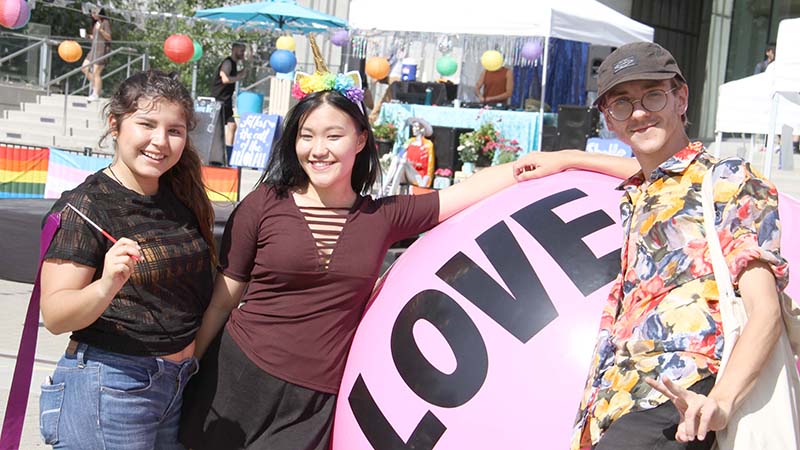
If you don’t identify as a member of the LGBTQ2SIA+ community, here’s what you can do to educate yourself, be an ally and help build a more inclusive UBC.
What can you do?
Respect people’s identity
Be mindful of people’s comfort with how public they are with their identity, and how it can affect their safety. Don’t out someone’s sexual orientation and/or gender identity.
You know what they say about assuming…
Never assume someone’s sexual orientation and/or gender identity. Respectfully ask people what pronouns they use regardless of their name or appearance.
Use gender inclusive language
Use language like “everyone” and “folks” rather than “guys” or “ladies.”
Speak up!
Let people know when you find transphobic and homophobic comments and jokes hurtful and offensive.
Educate yourself
Seek out resources and learn about issues that impact LGBTQ2SIA+ communities.
Use the correct pronouns
People do not always use pronouns that you may expect. It’s important to use someone’s correct pronoun to support their well-being and to validate their identity.
The following table shows a few examples of personal pronouns and how to use them:
| Nominative (subject) | Objective (object) | Possessive determiner | Possessive Pronoun | Reflexive | |
|---|---|---|---|---|---|
| She | She laughed | I called her | Her eyes gleam | That is hers | She likes herself |
| He | He laughed | I called him | His eyes gleam | That is his | He likes himself |
| They | They laughed | I called them | Their eyes gleam | That is theirs | They like themselves |
| Ze | Ze laughed | I called hir/zir | Hir/Zir eyes gleam | That is hirs/zirs | Ze likes hirself/zirself |
These are just a few examples. Usage varies over time and based on location, so expect to encounter other pronouns you may not be familiar with.
Please note: Some people may just want you to use their name and avoid pronouns altogether.
Learn the language
Lesbian, gay, bisexual, trans (transgender, gender non-conforming and non-binary), two-spirit, queer, questioning, intersex and asexual.
Allies take action and work towards recognizing their own biases and privileges, offer support and celebrate all sexual orientations and gender identities.